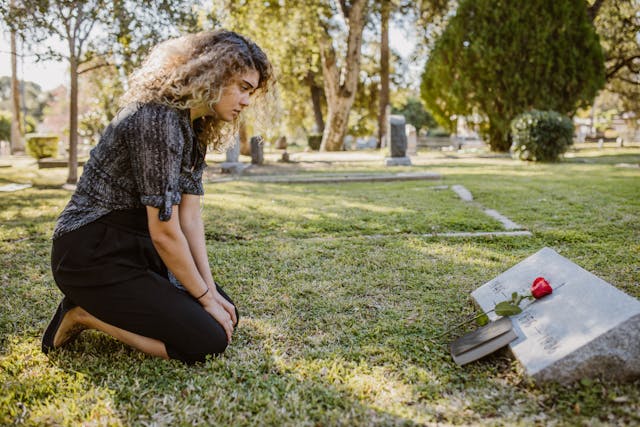Losing a loved one in a wrongful death situation is one of the hardest things a family can face. Pursuing justice through a lawsuit may feel overwhelming, especially when you’re unsure about legal costs. Many families worry about how they’ll afford an attorney to handle such a complex case. Fortunately, contingency fee arrangements can make it possible to seek justice without upfront costs, providing relief during an already stressful time.
Understanding how contingency fees work is essential for anyone considering a wrongful death claim. This payment structure allows you to focus on healing while your attorney handles the legal complexities. Knowing what to expect can help you make informed decisions and feel confident as you move forward.
What Are Contingency Fees in Legal Cases?
Contingency fees are a common payment arrangement in wrongful death lawsuits. Instead of paying your attorney upfront, they receive a percentage of the settlement or verdict if your case is successful. This means you don’t have to worry about out-of-pocket expenses while pursuing justice for your loved one.
The exact percentage varies, often ranging between 25% and 40%, depending on the complexity of the case. If the case doesn’t result in compensation, you won’t owe the attorney their fee, making it a low-risk option for families. This structure ensures that your lawyer is motivated to secure the best possible outcome for your case.
How Contingency Fees Benefit Families in Wrongful Death Cases
Contingency fees make it easier for families to access legal representation without financial strain. After losing a loved one, the last thing you need is the stress of upfront legal bills. With this arrangement, your attorney only gets paid when they win compensation, aligning their goals with yours.
This setup also allows families to hire skilled attorneys who might otherwise seem out of reach. Experienced lawyers are often willing to take on complex cases under contingency terms because they believe in their ability to achieve results. For families facing financial uncertainty, this approach can provide much-needed peace of mind.
What Do Contingency Fees Typically Cover?
Contingency fees usually cover the attorney’s time and effort in building and managing your case. This includes tasks like gathering evidence, negotiating with insurance companies, and representing you in court if necessary. However, additional expenses, such as filing fees or expert witness costs, may not always be included in the contingency agreement.
Some attorneys will front these costs and recover them from your settlement, while others may ask you to pay these expenses separately. It’s important to clarify these details upfront so you know exactly what to expect. Working with a Moore wrongful death attorney can help ensure transparency in the agreement and prevent any surprises later on.
Why Attorneys Offer Contingency Fees for Wrongful Death Cases
Attorneys often use contingency fee arrangements in wrongful death cases because they understand the financial strain these situations place on families. They also recognize that wrongful death cases can be complex, requiring a significant amount of time and resources to resolve. Taking cases on contingency allows attorneys to make their services available to clients who might otherwise find them unaffordable.
This arrangement benefits both parties, as it ensures the attorney is fully invested in the case’s success. Lawyers working on contingency typically perform thorough investigations and build strong arguments to maximize the chances of winning. This partnership creates a shared goal of achieving justice and fair compensation.
How Contingency Fees Align Incentives for Success
When an attorney works on contingency, their payment depends on the outcome of your case. This means they have a strong incentive to put in their best effort, as their financial gain is tied to yours. They’re motivated to fight for the maximum compensation possible, whether through settlement negotiations or trial.
This alignment of interests helps create a collaborative relationship between you and your attorney. You can trust that they’re prioritizing your case because their success depends on it. This structure also allows you to focus on your grief and healing while knowing your legal representation is working diligently on your behalf.
Questions to Ask Before Signing a Contingency Agreement
Before entering a contingency fee arrangement, it’s important to ask questions to understand the terms fully. Start by asking about the percentage the attorney will take from your settlement or verdict. Clarify whether this percentage changes if the case goes to trial, as some agreements have different rates for settlements versus court decisions.
Also, inquire about additional costs, such as court filing fees or expert witness expenses, and how these will be handled. Understanding whether these costs come out of your settlement or need to be paid separately is crucial. Open communication ensures you’re fully informed and avoids potential misunderstandings down the road.
What Happens If Your Case Doesn’t Succeed?
One of the benefits of contingency fees is that you don’t owe your attorney anything if your case doesn’t result in compensation. This risk-free approach ensures you’re not left with legal bills on top of the emotional and financial burden of losing a loved one. Attorneys understand this risk and only take cases they believe have a strong chance of success.
If your case doesn’t win, most attorneys absorb the costs of their time and effort, as well as any advanced expenses. While this might feel discouraging, knowing you won’t face additional financial stress can provide some reassurance. This structure allows families to seek justice without worrying about the financial consequences of an unsuccessful outcome.
Balancing Legal Pursuits with Healing
Pursuing a wrongful death lawsuit can be emotionally taxing, but contingency fees help alleviate some of the financial pressure. This arrangement allows you to focus on healing while your attorney manages the legal aspects of the case. Their expertise ensures that every detail is handled while you take the time you need to grieve and recover.
Choosing an attorney you trust is critical to making this process smoother. A strong partnership with your lawyer allows you to share your story and feel supported throughout the case. Working with a compassionate and skilled attorney allows you to honor your loved one’s memory while pursuing the justice they deserve.


